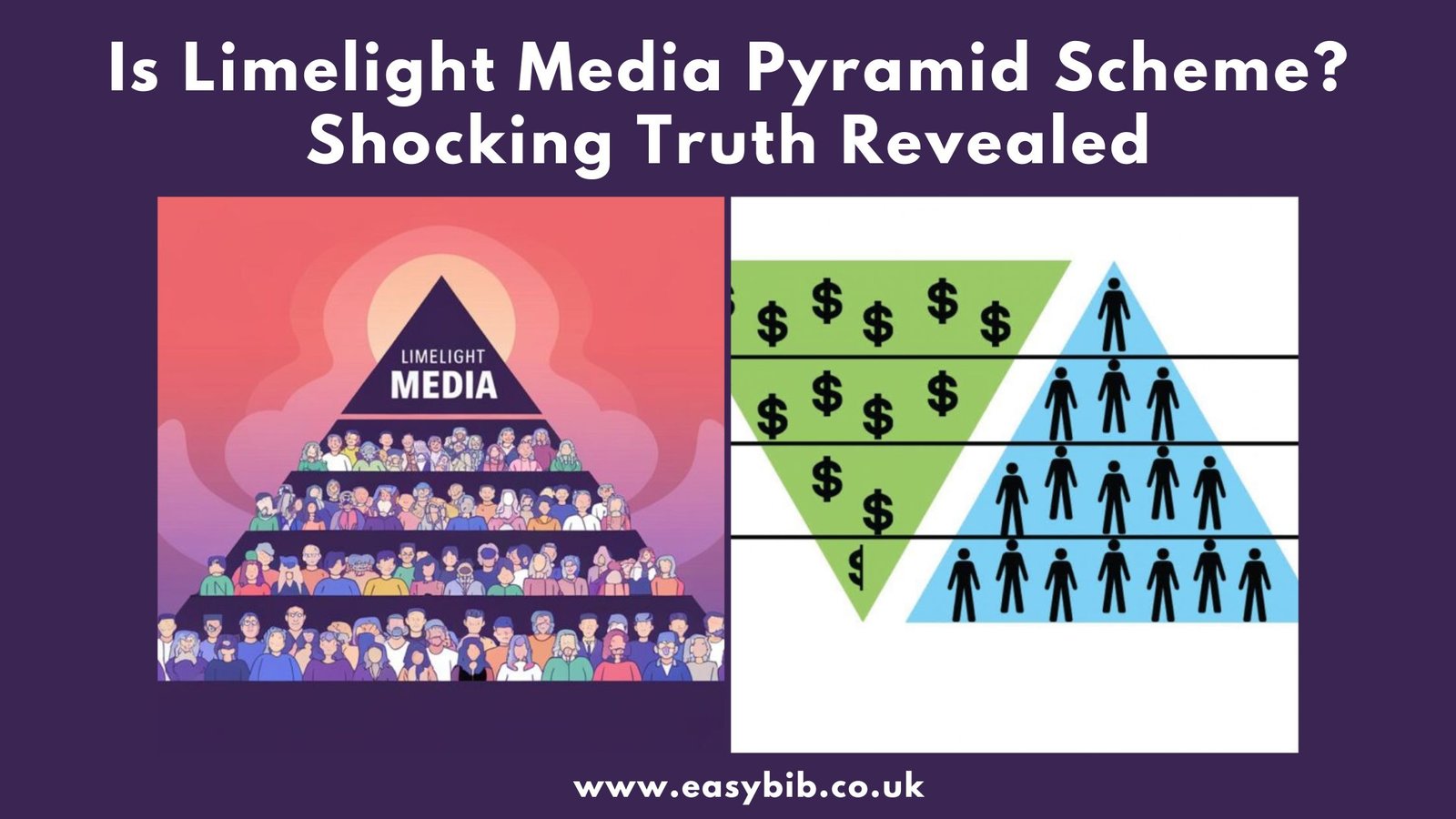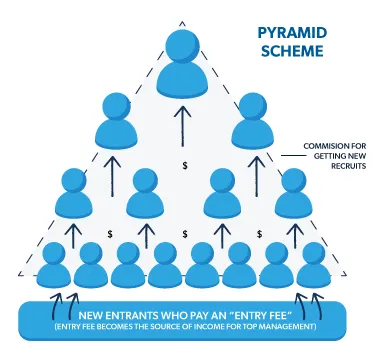Is Limelight Media Pyramid Scheme? Shocking Truth Revealed

Digital marketing and remote sales have seen a massive rise in popularity. Among the many companies promising financial success in this field, Limelight Media has made its mark by offering high-ticket training programs and so-called “remote closer” opportunities.
With bold claims of six-figure earnings and rapid career growth, the company has attracted thousands of individuals hoping to break into the world of online sales. However, beneath the surface of its flashy advertisements and emotional testimonials lies a growing concern about the company’s actual business practices. One that has led to serious allegations involving the Limelight Media pyramid scheme.
While Limelight Media advertises itself as a legitimate training and job-placement company, many former clients and independent reviewers argue that the organisation bears striking similarities to illegal pyramid schemes. With its focus on recruitment, high upfront fees, vague promises of income, and limited refund options, the business model appears less about education. This article breaks down these claims in detail, using evidence from real reviews, complaints, and regulatory standards.
What Does Limelight Media Offer?
Limelight Media positions itself as a digital marketing agency and a coaching platform focused on high-ticket sales. Their flagship program trains people to become “remote closers” individuals who close expensive deals on behalf of other businesses, often over the phone or via video conferencing. These remote sales roles are described as flexible, scalable, and highly profitable.
The training program includes pre-recorded video lessons, live Zoom calls, coaching sessions, and sales scripts. The total cost to access these features can range from $5,000 to more than $15,000. For many, the high investment is justified by promises of future income, career freedom, and access to job placement networks. However, a deeper look at customer experiences suggests that the reality may not align with these promises.
Understanding Pyramid Schemes
To properly assess the situation, it’s important to understand what a pyramid scheme is. A pyramid scheme is an illegal business model that primarily generates profit from recruiting new participants, rather than from the sale of products or services. New members pay upfront fees with the hope of making money by signing up others, who will then do the same. These schemes collapse quickly because they rely on constant recruitment to sustain earnings.
Pyramid schemes can be disguised as business training, investment opportunities, or even job placement programs. The Federal Trade Commission (FTC) clearly states that any program focusing more on recruitment than product sales is likely to be a pyramid scheme. With this in mind, we can now take a closer look at how Limelight Media’s model functions and whether it meets these dangerous criteria.
What Customers Are Saying?
If you search online platforms like BBB (Better Business Bureau), Ripoff Report, Reddit, or YouTube, you’ll find dozens of reviews and complaints from past customers. Many of these people say they were disappointed, misled, or even scammed. Common complaints include high-pressure sales tactics, poor training quality, false claims about job placements, and impossible refund conditions.

One user reported being charged over $10,000 for access to what they thought was a structured, job-focused program. Instead, they received access to videos, a few Zoom calls, and were left to fend for themselves. Another customer claimed they were misled into believing they’d be placed into a paid position immediately after completing the training, only to realise that no such opportunities existed. These stories paint a clear picture of a company more focused on collecting payments than delivering results.
Legal Risks and Ethical Problems
Though Limelight Media has not officially been labelled a pyramid scheme by authorities, the growing number of complaints and warning signs cannot be ignored. Under U.S. law, a business model that emphasises recruitment over actual product or service sales can be prosecuted as a pyramid scheme. The FTC has taken down several similar companies in the past for these same behaviours.
Even if Limelight Media operates in a legal grey area, its practices raise ethical concerns. Promising life-changing income while pressuring people to go into debt is irresponsible. Selling a job opportunity disguised as a training program is deceptive. Ignoring refund requests from dissatisfied customers is exploitative.
How to Stay Safe?
If you come across a company like Limelight Media or any program that seems too good to be true, take the following steps before investing your money:
Research Thoroughly
Don’t rely on testimonials found on the company’s website. Instead, search for third-party reviews, consumer complaints, and Reddit discussions. If a company is hiding negative feedback, that’s another red flag.
Ask Direct Questions
Contact the company and ask specific questions. What does the program include? Is job placement guaranteed? Are there any hidden fees? What’s the refund policy? If they can’t answer clearly or become defensive, walk away.
Take Your Time
High-pressure sales tactics are designed to prevent you from thinking clearly. If someone urges you to “buy now or miss out forever,” it’s often a scam. A legitimate business will respect your time and allow you to make an informed decision.
Final Thoughts
The Limelight Media pyramid scheme allegations should not be taken lightly. While some participants claim they’ve benefited from the training. Many others say they were left worse off, financially, emotionally, and professionally. The company’s business practices, especially its focus on recruitment, high upfront fees, and misleading marketing.
If you are considering joining a program like this, think carefully. Ask questions, read the fine print, and protect your finances. No training course should ever require you to go into debt just to learn how to make money. At the end of the day, transparency and trust are more valuable than promises of fast wealth.
